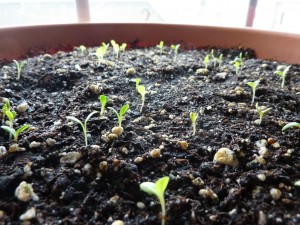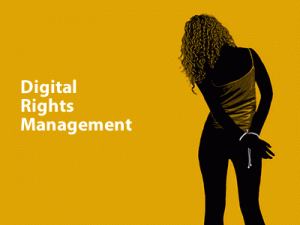 My fiancée has taken to growing edible things (as mentioned in the previous post). When we killed most of our lettuce through overwatering, at first I was elated. Then I realized that my continued existence depends on these sorts of plants being grown to maturity, and that they are fragile little bastards. We’ve had more luck with some and less with others, but overall we really suck at making food.
My fiancée has taken to growing edible things (as mentioned in the previous post). When we killed most of our lettuce through overwatering, at first I was elated. Then I realized that my continued existence depends on these sorts of plants being grown to maturity, and that they are fragile little bastards. We’ve had more luck with some and less with others, but overall we really suck at making food.
It is extraordinarily easy to imagine being dependent on only what you can grow. And it’s terrifying to think that if these crops don’t come in, I will die. In large part because you have so little control over them growing! There is nothing I can do if nothing sprouts up after I’ve planted the seeds. There’s no way for me to prevent extreme weather conditions from drowning or freezing my crops. When a blight comes in and starts to rot the plants where they stand, I cannot take a sword or gun and hunt down the infection and kill it off. All I can do is watch as my life withers before me.
I’m used to a world where I have some modicum of control. I used to fear giving others ways to control me (a topic for another post), but I always assumed that if I needed to eat I could find a store and purchase some food. Life might suck, but I’d never be completely helpless in the face of starvation. How long had the human race lived with this sort of fear? I’m uneasy even thinking about it!
No wonder people developed superstitions, in the face of such helplessness. Being unable to do anything at all is insanity-inducing. Wave a cat at your fields under a full moon? Well shit, if someone says it works, I’ll damn well do it! Watch as day over day, the green shoots rise from the earth and fill out. How does this happen? Who makes it grow? I plant and I water, but only God can make it grow. Praise be unto him, and let’s make sure he stays happy with us.
It’s been observed that the safer and stabler a society is, the lower the incidence of religiosity among its population. I am immensely grateful to the humans who’ve come before me who have discovered how to make crops grow efficiently and consistently. To the point where no one fears starvation, and just 2-3% of the population grows enough food to feed the whole country. That is why I so often use pictures of industrial agriculture in this blog. Not only do they make life possible, and secure, they have saved me from the fate of the superstitious. I see the mind-numbingly devout and I think “There, but for the grace of men like Norman Borlaug, go I.”








